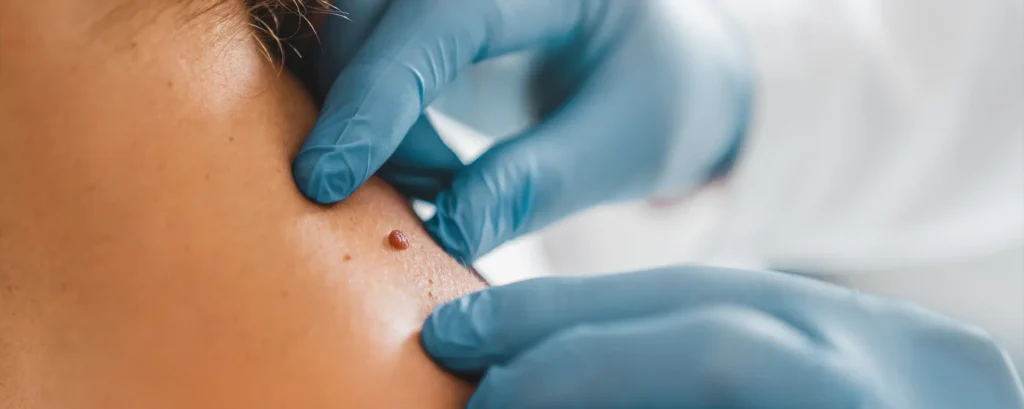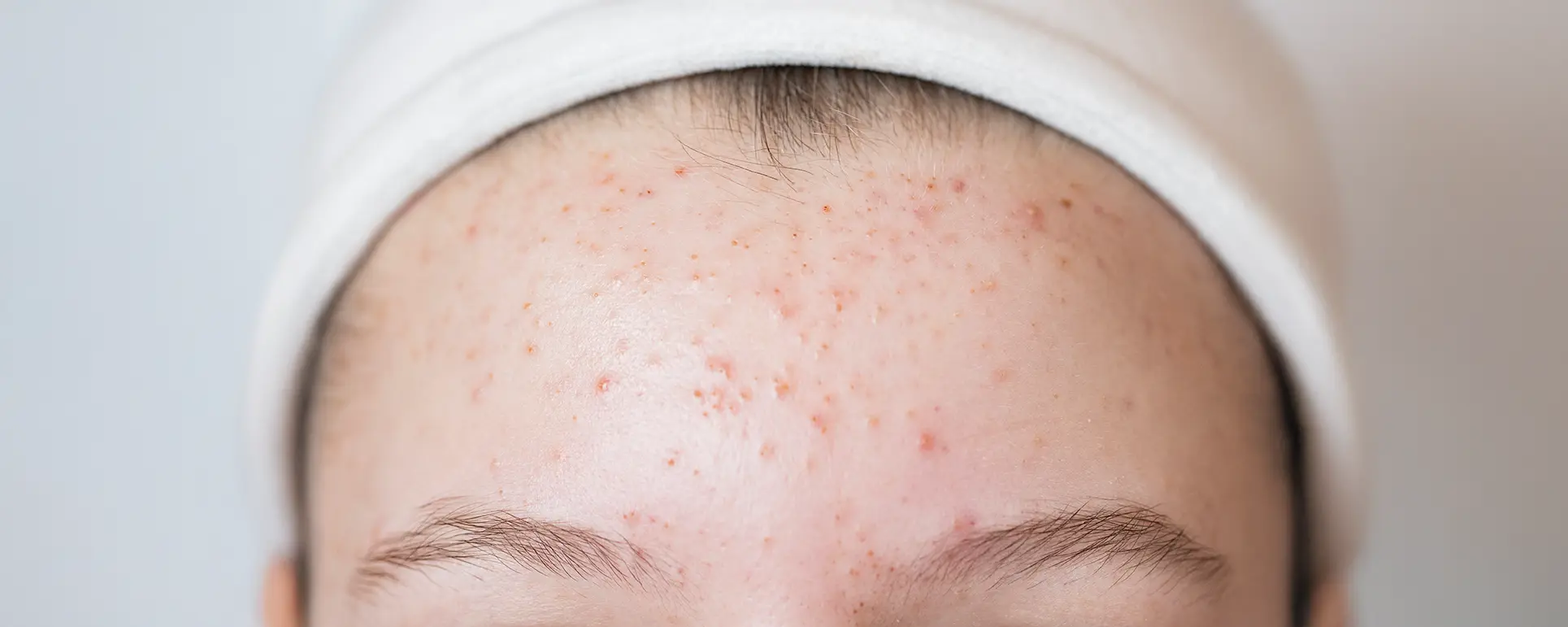Skin problems are not just an occasional annoyance they’re some of the most common health concerns affecting people across the UK. From persistent eczema flare-ups to stubborn acne, recurring psoriasis patches, and the growing concern around skin cancer, these conditions touch the lives of millions every year. Yet, despite how widespread they are, many people remain unaware of just how common these issues can be, or the impact they have on daily life.
In fact, skin-related concerns are among the top reasons for GP consultations in the UK, highlighting just how significant the problem is. But prevalence alone doesn’t tell the whole story. Behind every statistic are people coping with discomfort, changes in appearance, and the emotional strain that often comes with visible skin problems.
By looking at the most recent national data, we can get a clearer picture of the scale of these conditions from how many people are affected, to which age groups are most at risk, and how trends have changed over the years. Understanding these figures is more than just an academic exercise. It can help you recognise the importance of early diagnosis, encourage you to seek treatment promptly, and give you a sense of perspective that you’re far from alone in your experience.
In this article, we’ll break down the latest UK statistics on common skin conditions, explore what they reveal about the state of dermatological health, and discuss why awareness and timely care are essential for protecting your skin now and in the future.
1. Around 1 in 4 People in the UK Are Affected by Skin Conditions
Skin conditions are far more common than many people realise. Research suggests that roughly 25% of people in the UK experience some form of skin problem each year that’s one in every four individuals. When you think about the size of the UK population, this figure translates to millions of people seeking help for issues ranging from mild dryness and irritation to chronic, long-term conditions.
This prevalence helps explain why skin-related concerns remain one of the leading reasons for GP visits across the country. It also reflects the wide variety of factors that can affect skin health including genetics, environmental triggers, lifestyle habits, and even stress levels.
What It Means for Patients:
If you’re living with a skin condition, you’re part of a very large community of people facing similar challenges. Whether it’s persistent acne, recurring eczema flare-ups, itchy patches from psoriasis, or the redness associated with rosacea, there are many effective treatments available today. Dermatologists have the expertise to accurately diagnose the cause of your symptoms, create a tailored treatment plan, and guide you on lifestyle adjustments that can help manage your condition. With the right approach, it’s possible to not only improve your skin’s appearance but also significantly enhance your comfort and confidence in everyday life.
2. Acne Affects 50–60% of Adults in the UK

Acne isn’t just a teenage concern it’s something that affects a significant proportion of adults as well. In fact, research indicates that between 50% and 60% of adults in the UK will experience acne at some point in their lives. For some, it’s a continuation of breakouts from their teenage years, while for others it appears for the first time well into adulthood. This means that even in your 30s, 40s, or later, acne can still be a frustrating and sometimes surprising issue to deal with.
Adult acne can be triggered by a range of factors, including hormonal changes, stress, diet, skincare habits, and even certain medications. Because it can have both physical and emotional effects, many people find it impacts their self-confidence just as much as it affects their skin.
What It Means for Patients:
If you’re an adult struggling with acne, you’re far from alone. This is a very common concern, and there are many effective treatment options available today. Dermatologists can tailor solutions to your specific needs, ranging from prescription-strength topical treatments and oral medications to advanced therapies like light-based treatments or chemical peels. With the right guidance, it’s possible to reduce breakouts, minimise scarring, and regain confidence in your skin at any stage of life.
3. Eczema Affects 1 in 5 Children and 1 in 12 Adults in the UK
Eczema, also known as atopic dermatitis, is one of the most common chronic skin conditions in the UK especially among children. Statistics show that around 1 in 5 children are affected, which means it’s likely that most families know someone dealing with this condition. While many children do see an improvement as they get older, eczema doesn’t always disappear in adulthood. Around 1 in 12 adults in the UK continue to experience symptoms, sometimes in flare-ups that can be unpredictable and persistent.
The condition is characterised by dry, itchy, and inflamed skin that can become sore or even infected if scratched. For children, it can interfere with sleep, school, and play, while adults may find it affects work, confidence, and day-to-day comfort. Environmental triggers such as cold weather, harsh soaps, allergens, or even stress can make symptoms worse, which is why personalised management is so important.
What It Means for Patients:
Eczema can be controlled, but it often requires consistent care and a tailored approach. Common treatments include daily moisturisers to strengthen the skin barrier, topical steroids to reduce inflammation, and antihistamines to ease itching. In more persistent or severe cases, dermatologists may recommend specialist therapies such as phototherapy or newer biologic medications. By working with a dermatologist, you can identify your triggers, create an effective treatment plan, and reduce the frequency and severity of flare-ups helping you maintain healthier, more comfortable skin over the long term.
4. Psoriasis Affects Over 2 Million People in the UK
Psoriasis is a long-term autoimmune condition that affects more than 2 million people in the UK, making it one of the most common chronic skin disorders in the country. The condition occurs when the immune system triggers an overproduction of skin cells, causing them to build up rapidly on the surface. This results in thick, scaly patches that can appear anywhere on the body, but are most often found on the scalp, elbows, knees, and lower back.
Psoriasis is not contagious, but it can be highly visible and sometimes uncomfortable, causing itching, soreness, and even cracking or bleeding of the skin. It tends to go through cycles, with periods of flare-ups followed by times of remission. Triggers can include stress, infections, certain medications, and seasonal changes, making management a highly individual process.
What It Means for Patients:
Psoriasis is a lifelong condition, but with the right approach, symptoms can be significantly reduced. Treatment options vary depending on severity and may include medicated creams and ointments to slow skin cell growth, light therapy to target affected areas, and biologic medications that work by calming the overactive immune response. Regular check-ins with a dermatologist can help you monitor your condition, adjust treatments as needed, and find strategies to keep flare-ups under control so you can maintain a better quality of life.
5. Skin Cancer Is the Most Common Type of Cancer in the UK
Skin cancer holds the troubling distinction of being the most common cancer in the UK, with more than 100,000 new cases diagnosed every year. While this figure includes both non-melanoma and melanoma types, it’s important to understand the difference. Non-melanoma skin cancers which include basal cell carcinoma and squamous cell carcinoma are far more common and generally less aggressive, though they still require prompt treatment. Melanoma, on the other hand, is less common but far more dangerous, and its rates have been steadily rising over the past few decades.
The main cause of skin cancer is overexposure to ultraviolet (UV) radiation from the sun or tanning beds, although genetics and certain medical conditions can also increase risk. Fair-skinned individuals, people with a history of sunburn, and those with many moles are at higher risk. The good news is that when detected early, most skin cancers are highly treatable and survival rates for early-stage melanoma are very high.
What It Means for Patients:
Early detection is your best defence. Regular mole checks, either at home or with a dermatologist, can help you spot suspicious changes before they become serious. Warning signs to look out for include changes in the size, shape, or colour of a mole, the appearance of a new mole, or a sore that doesn’t heal. If you notice anything unusual, make an appointment with a dermatologist as soon as possible. They can perform a thorough skin examination, arrange any necessary tests, and, if needed, start treatment early significantly improving the outcome.
6. Around 1 in 3 GP Appointments Are for Skin Conditions
It’s easy to underestimate just how common skin problems are until you look at the numbers. In the UK, around one in three GP appointments is related to a skin condition. That means dermatological issues make up a significant share of primary care visits, placing them among the most frequently addressed health concerns in the country. These appointments can range from quick consultations about a rash or mole to ongoing management of chronic conditions like eczema, acne, or psoriasis.
This high demand highlights two key realities: first, that skin health is a major component of overall wellbeing, and second, that many people need ongoing support for skin-related concerns. It also reflects how varied dermatological issues can be, from minor irritations that clear up quickly to more serious conditions that require specialist intervention.
What It Means for Patients:
Because dermatology services are in such high demand, it’s important to be proactive when it comes to your skin health. Don’t wait for symptoms to become severe before seeking help early intervention can often lead to better outcomes and less intensive treatment. If you notice any changes in your skin, whether it’s a new growth, persistent irritation, or a condition that isn’t improving with over-the-counter remedies, consider booking an appointment with a dermatologist. Specialist care can provide faster diagnosis, more targeted treatment, and peace of mind that your skin is being properly looked after.
7. About 90% of Skin Cancer Cases Are Preventable

Skin cancer may be the most common cancer in the UK, but the encouraging news is that the vast majority of cases could be avoided. According to the Skin Cancer Foundation, up to 90% of skin cancer cases are preventable by adopting simple but consistent sun safety habits. This includes protecting your skin from harmful UV rays, steering clear of tanning beds, and using clothing or accessories to shield exposed areas from direct sunlight.
Prevention matters because UV damage accumulates over time. Even short periods of unprotected sun exposure such as walking the dog at midday or skipping sunscreen on a cloudy day can contribute to long-term skin damage and increase your risk. By making sun protection part of your daily routine, you can dramatically lower your chances of developing skin cancer while also preventing premature ageing, sunburn, and other UV-related skin problems.
What It Means for Patients:
You have more control over your skin cancer risk than you might think. Daily use of a broad-spectrum sunscreen with an SPF of at least 30, wearing protective clothing and wide-brimmed hats, and seeking shade during peak sunlight hours can all make a major difference. In addition, regular mole checks either at home or with a dermatologist allow you to catch any suspicious changes early, when treatment is most effective. Prevention and early detection work hand in hand to protect your long-term skin health.
8. 60% of People Don’t Perform Regular Skin Checks
Even though early detection can make all the difference when it comes to treating skin cancer, a surprising 60% of people admit they don’t perform regular skin checks. This means the majority of people are potentially missing early warning signs such as changes in the shape, size, or colour of moles that could prompt timely diagnosis and treatment.
Part of the reason may be that many people simply don’t know what to look for, or they assume that serious skin problems will be obvious and painful. In reality, dangerous changes can be subtle, painless, and easy to overlook unless you make checking your skin a habit. A self-check only takes a few minutes once a month, but it could be life-saving.
What It Means for Patients:
Regular skin checks are one of the most effective ways to protect yourself from late-stage skin cancer. Stand in front of a mirror and inspect your skin from head to toe, including often-missed areas like the scalp, soles of your feet, and behind your ears. If you’re not sure what’s normal or you spot anything new or unusual, schedule a visit with a dermatologist. Professional mole checks can provide peace of mind, identify concerns early, and ensure you get any necessary treatment as soon as possible.
9. Only 15% of Skin Cancer Cases Are Diagnosed Early
When it comes to skin cancer, timing is everything. Yet, despite advances in awareness and treatment, only about 15% of cases in the UK are diagnosed at an early stage the point when treatment is typically most effective and less invasive. This statistic is concerning because early-stage skin cancers are often highly curable, while later-stage cases can require more aggressive treatment and carry a higher risk of serious complications.
One reason for the low early-diagnosis rate is that many people delay seeking medical advice, either because they don’t notice changes in their skin or they assume it’s nothing serious. In some cases, people may also struggle to access timely dermatology appointments, which can lead to further delays in diagnosis.
What It Means for Patients:
You can greatly improve your chances of early detection by making regular skin checks a routine part of your health care. Keep an eye out for new moles, spots that change in appearance, or sores that don’t heal. If you notice anything unusual, see a dermatologist promptly. Regular professional skin exams especially if you’re at higher risk can help ensure abnormalities are spotted early, giving you the best possible outcome if treatment is needed.
10. More Women Than Men Develop Skin Cancer in the UK

In the UK, statistics show that women are more likely than men to develop skin cancer, particularly non-melanoma types such as basal cell carcinoma and squamous cell carcinoma. Several factors contribute to this trend, but one of the most significant is higher levels of sun exposure during childhood and adolescence a time when skin is especially vulnerable to UV damage. Cultural habits, clothing choices, and the popularity of tanning during earlier decades have also played a role in shaping this pattern.
However, while women are more likely to be diagnosed, studies also show that men tend to have poorer outcomes when they do develop skin cancer. This is often linked to later detection, as men are statistically less likely to perform regular skin checks or seek early medical advice.
What It Means for Patients:
Regardless of gender, everyone should be proactive about protecting their skin. This means using sunscreen daily, seeking shade during peak sunlight hours, wearing protective clothing, and avoiding tanning beds. Regular mole checks both at home and with a dermatologist are equally important, particularly if you have a history of sunburns, spend a lot of time outdoors, or have a family history of skin cancer. Early detection offers the best chance for successful treatment, no matter your age or gender.
Final Thought: Taking Charge of Your Skin Health
Skin conditions like eczema, acne, and psoriasis are more common than you might think. The rise in skin cancer diagnoses highlights the importance of early detection and regular skin checks. Whether you’re dealing with a chronic condition or just concerned about a changing mole, seeing a dermatologist in London can help you manage your skin health effectively.
You can get in touch with us to book a consultation with one of our expert dermatologists in London. We’re here to help you with any skin concerns and provide the care you need.
References:
- British Association of Dermatologists (House of Commons Health Committee submission) British Association of Dermatologists (2015) Written evidence to the House of Commons Health Committee: Skin diseases. LTC 89. London: House of Commons. Available at: https://publications.parliament.uk/pa/cm201415/cmselect/cmhealth/401/401vw78.htm
- PubMed Epidemiology of Eczema in England de Lusignan, S., Feeney, C., Dennis, J., McGovern, A. and Flohr, C. (2020) ‘The epidemiology of eczema in children and adults in England: a population-based study using primary care data’, Clinical & Experimental Allergy, [online] Available at: https://pubmed.ncbi.nlm.nih.gov/33179341/
- Cancer Research UK Melanoma Skin Cancer Statistics Cancer Research UK (n.d.) Melanoma skin cancer statistics. [Online] Available at: https://www.cancerresearchuk.org/health-professional/cancer-statistics/statistics-by-cancer-type/melanoma-skin-cancer
- Cancer Research UK Non-Melanoma Skin Cancer Incidence Cancer Research UK (n.d.) Non-melanoma skin cancer incidence statistics. [Online] Available at: https://www.cancerresearchuk.org/health-professional/cancer-statistics/statistics-by-cancer-type/non-melanoma-skin-cancer
- The Guardian / Cancer Research UK Rise in Melanoma Rates (news source) Riley, S. (2024) ‘Rates of melanoma skin cancer hit all-time high in UK, study finds’, The Guardian, 27 May. Available at: https://www.theguardian.com/society/article/2024/may/27/rates-melanoma-skin-cancer-research-uk-figures-study
